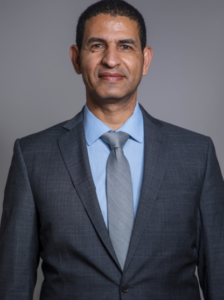Menu
Eid Mohamed
Qatar University

Eid Mohamed is an assistant professor, in the Department of English Literature and Linguistics at the College of Arts and Sciences, Qatar University. Mohamed's work is located
at the crossroads of several areas of inquiry in US-Middle East studies, literary, media, and cultural studies. His recent publications include a sole-authored book on the role of Egyptian cultural and literary producers in mediating critiques of US power and how one can historicize the Egyptian responses to power as well as the hopes and despairs of the Obama presidency and the Arab Spring (Arab Occidentalism, I.B. Tauris, 2015), a co-edited volume about the 2011 Egyptian uprising and its aftermath (Egypt Beyond Tahrir Square, Indiana University Press, 2016), and a co-edited collection, “Arab Spring:
Modernity, Identity and Change” (Palgrave, 2019).
Talk Information:
Transculturation in a Changing Arab World: Engaging Contexts in Conversation
January 26, 2024 | 9:00 AM
This talk will focus on exploring the questions of how the
political transformations since 2011 have affected the
construction of a collective Arab identity. How have these
political, socioeconomic, and cultural upheavals affected
the imagining of this identity? And what are the
processes that affect the shaping of such a collective Arab transcultural identity? By transcultural identity, I refer to the extent to which a citizen can see himself or herself in the Other beyond the division of national borders. In the context of Arab transcultural identity, we can ask, for example, What makes a peasant farmer in the suburbs of Egypt identify with an unemployed Tunisian graduate protesting in the streets of Tunis? Or asked differently, What was it about the Tunisian masses who were protesting during the Jasmine revolution in December 2010 that inspired the masses in Cairo to protest in Tahrir Square in January 2011? Can one even imagine that a revolution in Egypt would have been sparked had there not been an uprising in Tunisia that preceded it? In
attempting to answer these questions, This talk aims to
explore the processes that contribute to the formation of
a collective and transcultural Arab identity that stretches
across national borders.
Play Video